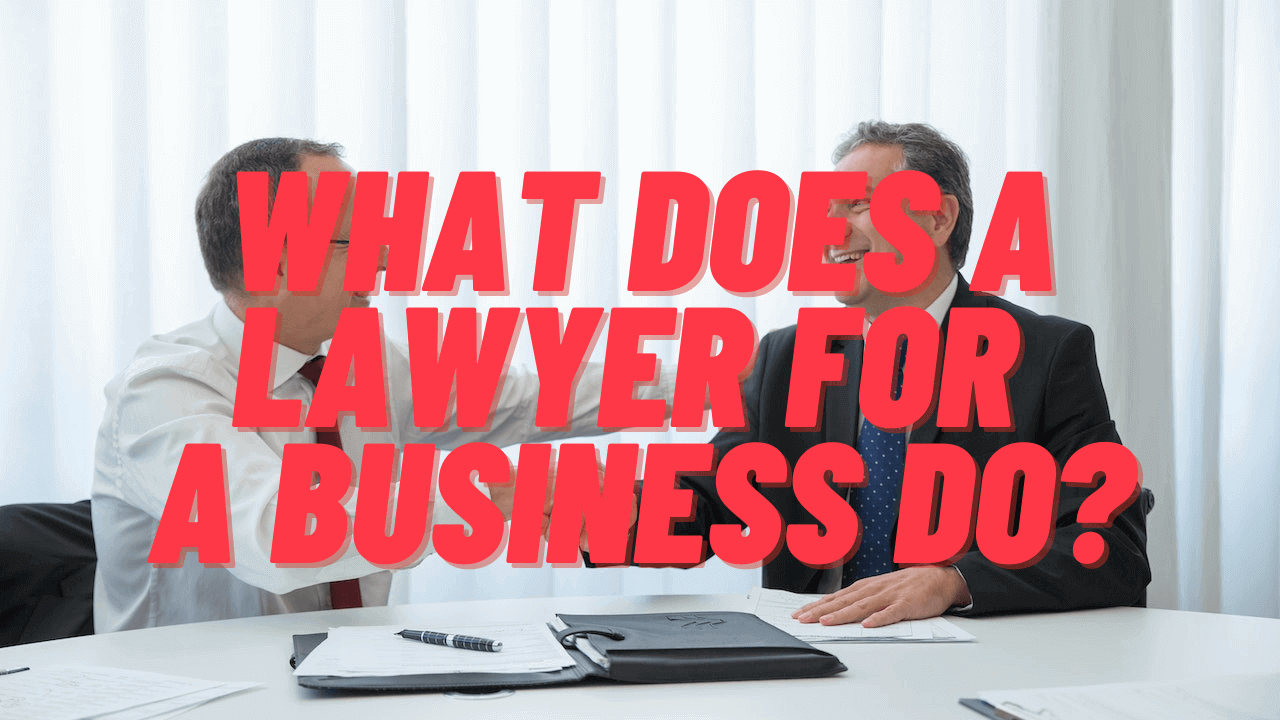If you’re a business owner or planning to start a business, you may have wondered, “What does a lawyer for a business do?” This article takes a deep dive into the role of a business lawyer, how they support and protect businesses, and why their role is crucial for the smooth operation and survival of any enterprise. Let’s explore!
Introduction
A business lawyer, also known as a corporate lawyer, is a legal professional who provides advice, guidance, and representation to businesses on a wide range of legal matters. Their role extends beyond courtroom representation; they help businesses navigate the complex maze of laws and regulations, ensuring their operations are legally compliant and risk-optimized. This article will offer a comprehensive guide to understanding the role of a business lawyer, helping you determine how to best utilize their skills in your venture.
Understanding the Role of a Business Lawyer
Business lawyers wear many hats. Let’s break down their primary responsibilities:
Providing Legal Guidance
One of the crucial roles of a business lawyer is to provide legal advice to help businesses make informed decisions. For instance, they may advise a tech startup about potential liability issues with their new product or service.
Negotiating and Drafting Contracts
Business lawyers often draft, review, and negotiate contracts on behalf of the businesses they represent. For example, if a business intends to partner with another company, a business lawyer would draft a partnership agreement outlining the rights and responsibilities of each party.
Representing the Business in Legal Proceedings
Whether it’s a civil suit, an arbitration process, or a regulatory compliance issue, a business lawyer stands in the company’s corner, ensuring their interests are adequately defended.
Compliance with Laws and Regulations
Business lawyers help companies navigate the vast array of local, state, and federal regulations applicable to their operations, mitigating legal risks before they become significant issues.
The Business Lawyer and Business Formation
Helping Choose the Right Business Structure
Choosing the right business structure is critical as it affects legal liability, taxation, and the business’s ability to raise capital. Whether it’s a sole proprietorship, partnership, LLC, or corporation, a business lawyer guides entrepreneurs in selecting the optimal structure. For instance, a business lawyer advised Ben and Jerry’s founders to incorporate as a company to attract investors, a move that contributed significantly to their brand’s growth.
Assisting with Legal Paperwork for Business Formation
Starting a business involves dealing with loads of paperwork, from registering the business name to applying for licenses and permits. A business lawyer ensures that all documents are correctly filled out and filed, avoiding legal pitfalls down the line.
Guiding Through the Legal Complexities of Starting a Business
Starting a business isn’t just about having a great idea; it also involves navigating complex legal landscapes. A business lawyer provides invaluable guidance throughout this process, helping entrepreneurs avoid costly mistakes.
The Business Lawyer and Intellectual Property
Protection of Intellectual Property
Business lawyers play an integral role in protecting a business’s intellectual property, including trademarks, copyrights, and patents. They can help a software company patent a unique algorithm, ensuring that their intellectual property is adequately protected and monetized.
Patenting Innovations
From preparing and filing patent applications to fighting patent disputes, a business lawyer ensures that a business’s innovations are well-protected.
Trademarking Brand Elements
Whether it’s a logo, brand name, or slogan, a business lawyer can help businesses secure trademarks, essential in building and protecting brand identity.
Copyrighting Original Works
Business lawyers guide businesses in copyrighting their original works, including software, advertising copy, and manuals, preventing unauthorized use.
The Business Lawyer and Employment Law
Drafting Employment Contracts
Business lawyers play a crucial role in drafting employment contracts that are fair, clear, and compliant with employment laws, protecting both the employer and the employee.
Resolving Employment Disputes
From wrongful termination claims to discrimination complaints, a business lawyer represents businesses in resolving employment disputes, often helping to settle these issues out of court.
Navigating Laws Surrounding Hiring and Firing
Understanding the legalities around hiring and firing can be a minefield. A business lawyer guides businesses through this complex area, helping them to avoid potential lawsuits.
The Business Lawyer and Business Transactions
Handling Business Mergers
A business lawyer is instrumental in conducting due diligence, drafting merger agreements, and ensuring that the process complies with all relevant laws during business mergers.
Assisting in Acquisitions
Similarly, business lawyers play a vital role in business acquisitions, helping to negotiate the terms, perform due diligence, and close the deal.
Providing Legal Guidance on Divestitures
If a business is considering selling off a division, a business lawyer provides legal advice on the process, helping to negotiate terms and ensure a smooth transition.
Supporting Through Restructurings
Business lawyers also assist companies going through a restructuring process, providing advice on legal rights and obligations, and helping to negotiate with creditors, if necessary.
The Business Lawyer and Litigation
Representing the Business in Court
If a business faces a lawsuit, a business lawyer represents the company in court. They prepare the case, handle all the court proceedings, and work to achieve the best possible outcome for the business.
Managing Dispute Resolution
Not all business disputes end up in court. A business lawyer often helps mediate conflicts, helping parties reach a settlement through negotiation or alternative dispute resolution methods like arbitration or mediation.
Navigating Legal Risks and Liabilities
Business lawyers help identify potential legal risks and liabilities, providing guidance on how to minimize these risks.
Hiring a Business Lawyer: What to Look For
Evaluating Expertise and Experience
Not all business lawyers are created equal. When hiring, it’s crucial to evaluate their expertise and experience in your specific industry or the legal issues you expect to face.
Understanding Legal Fees
Business lawyers can charge in different ways, including hourly rates, flat fees, or contingency fees. Understanding how your lawyer’s fees work can help prevent misunderstandings later on.
Finding the Right Fit for Your Business
Beyond the legal expertise, the right business lawyer for your business is someone you feel comfortable with, who understands your business, and who communicates effectively.
Conclusion
The value of a business lawyer to an enterprise can’t be overstated. From helping with business formation, protecting intellectual property, handling employment law issues, assisting in business transactions, to representing the business in court, a business lawyer is a business’s best friend in navigating the complex world of business law. As legal landscapes continue to evolve, businesses will increasingly rely on their lawyers to stay ahead, mitigating legal risks and leveraging legal opportunities.



